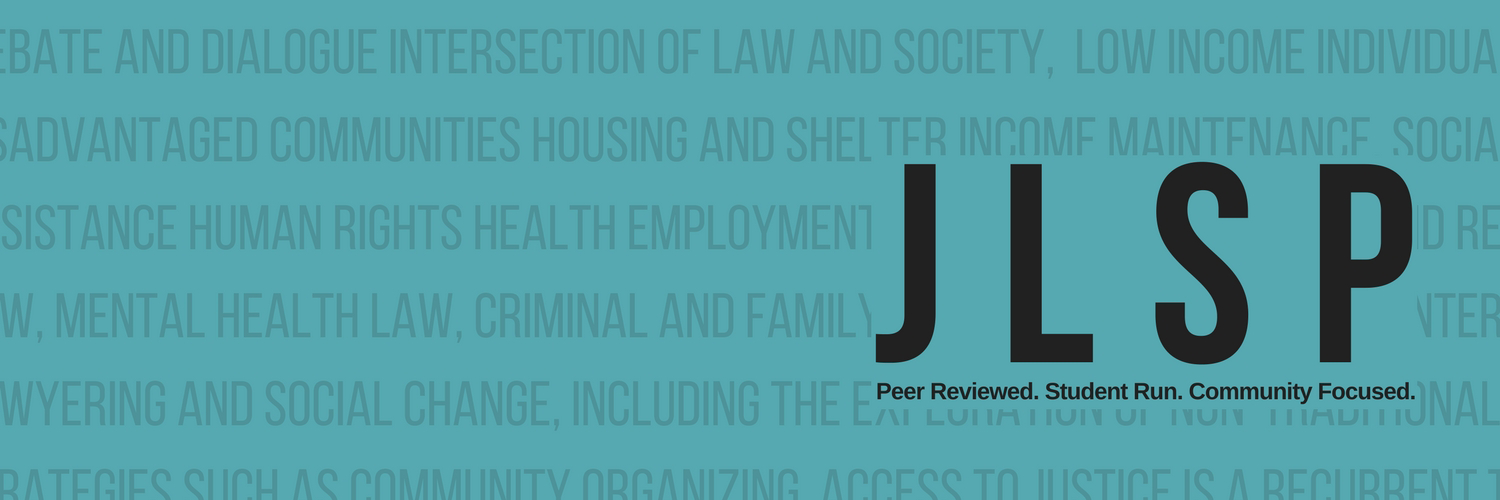
Publication Date
2016
Document Type
Article
English Abstract
Violations of the minimum core economic and social rights (ESR) deprive society’s most vulnerable individuals and groups of the very resources that are essential to life and basic well-being. States have an obligation to ensure that meaningful remedies are available for such infringements. Though articulating a minimum core for ESR poses challenges, and critics of the concept find it beyond the institutional competence of courts, it remains an important tool for adjudication. The minimum core focuses the inquiry on the underlying goals of human rights: the protection of vulnerable and marginalized groups from the most serious forms of deprivation and suffering. It reinforces the indivisibility and interdependence—and, consequently, the justiciability—of all human rights. Using the examples of two recent cases considering the rights to adequate housing and health care in Canada, this paper suggests that the minimum core may have potential to serve as a useful interpretive aid to assess the content of rights to life and security of the person under section 7 of the Charter, in full respect of institutional boundaries, and in a matter that is consistent with Canada’s international human rights obligations.
French Abstract
Les manquements aux droits économiques, sociaux et culturels (DES) fondamentaux minimaux privent les personnes et les groupes les plus vulnérables de la société des ressources nécessaires à leur vie et à leur bien-être rudimentaire. Les États ont l’obligation d’assurer la disponibilité de recours significatifs pour de tels manquements. Bien que l’articulation d’une obligation fondamentale minimum en matière de DES présente certains défis, et que les critiques de ce concept croient que les tribunaux n’ont pas la compétence institutionnelle requise pour le mettre en oeuvre, il s’agit tout de même d’un outil important pour la prise de décision. L’obligation fondamentale minimum met l’accent sur la recherche des objectifs sous-jacents des droits de la personne : la protection des groupes vulnérables et marginalisés contre les formes les plus graves de dépravation et de souffrance. Elle renforce l’indivisibilité et l’interdépendance – et conséquemment la justiciabilité – de tous les droits de la personne. Prenant à titre d’exemples deux décisions récentes relatives aux droits à un logement adéquat et aux soins de santé au Canada, cet article avance que l’obligation fondamentale minimum est prometteuse. En effet, elle peut servir d’aide à l’interprétation dans l’évaluation du contenu des droits à la vie et à la sécurité de sa personne, en vertu de l’article 7 de la Charte, et ce, en respectant pleinement les limites institutionnelles applicables et les obligations internationales du Canada en matière de droits de la personne.
Citation Information
Kwadrans, Ania.
"Socioeconomic Rights Adjudication in Canada: Can the Minimum Core Help in Adjudicating the Rights to Life and Security of the Person under the Canadian Charter of Rights and Freedoms?."
Journal of Law and Social Policy
25.
(2016): 78-108.
DOI: https://doi.org/10.60082/0829-3929.1225
https://digitalcommons.osgoode.yorku.ca/jlsp/vol25/iss1/4
